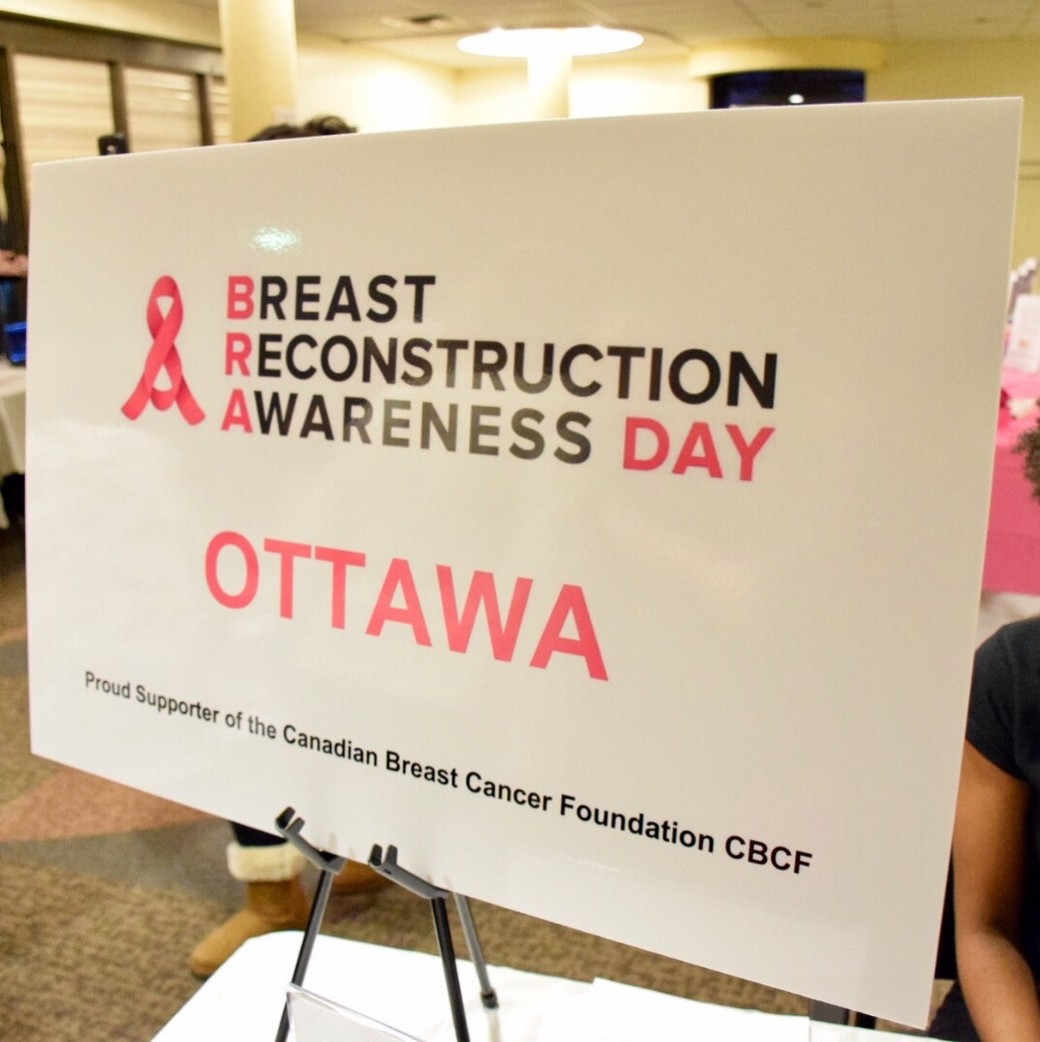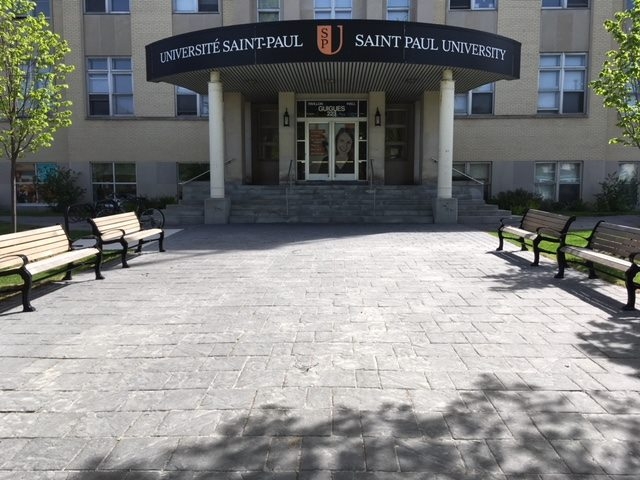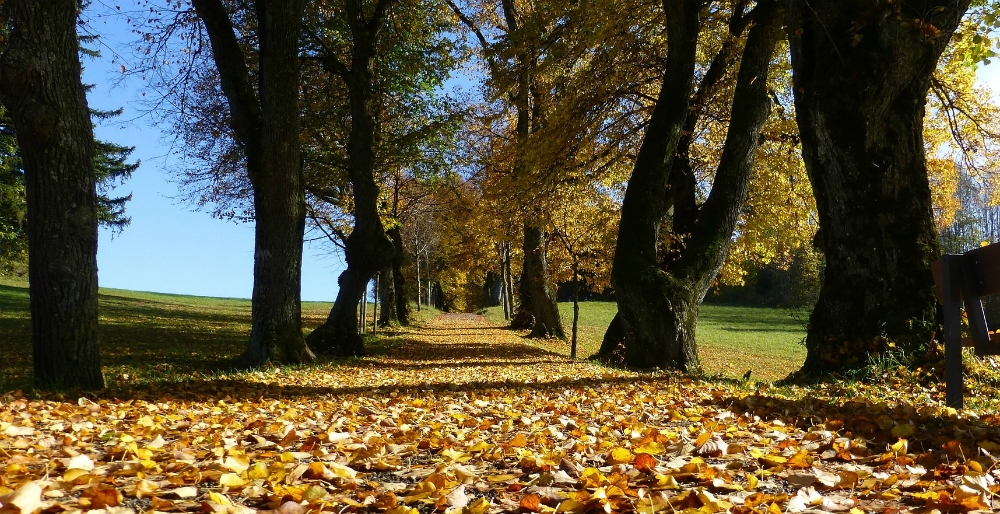
BRA Day Ottawa Closes the Loop on Breast Cancer
When a man or woman defeats breast cancer, the battle is still far from over. After multiple surgeries and therapies, the physical, mental and emotional toll left on survivors can have a real impact on their quality of life following remission. For many survivors breast reconstruction is an important part of this healing process and yet the resources available in this space are limited.
It was this void in caring for breast cancer survivors that BRA Day, an acronym for Breast Reconstruction Awareness, came to be. A program of the Canadian Breast Cancer Foundation (CBCF), BRA Day was started in Toronto in 2011 by Dr. Mitchell Brown to ‘Close the Loop on Breast Cancer’ and educate survivors on their choices for reconstructive surgery.
“Dr. Brown saw the need for education, access, and awareness for women undergoing mastectomy either due to cancer treatments or prophylactically,” explained Katie Evans, Programs Coordinator at CBFC. “The aim of BRA Day is not to promote breast reconstruction, but to ensure any woman facing a breast cancer or high-risk diagnosis is aware of her options prior to undergoing any surgery.”
It has since grown to over 30 countries worldwide and has 31 events this year in Canada alone, including Ottawa.
This past Wednesday, for BRA Day Ottawa, men and women from across the city came together at the Civic Hospital, in collaboration with the Queensway Carleton Hospital, to learn more about their reconstructive surgery options first-hand from both the doctors that perform them and the women who have experienced them.
Dr. Kirsty Boyd and Lyne Landry-Dobson started the Ottawa BRA Day four years ago and this year the event is being led by Dr. Haemi Lee. “Education and awareness
“Education and awareness has always been a personal mandate for me when it comes to my plastic surgery practice,” said Lee. “For patients who have breast cancer it’s important to know their options ahead of time because these decisions can last a lifetime after cancer treatment has finished.”
 Of course, reconstruction is not the only option for breast cancer patients. Survivors can wear prosthetics, if necessary, but with the range of defects, scarring, and imbalances that many patients are left with after surgery, prosthetics often do not meet their needs or are just plain uncomfortable. It is presenting the option of reconstruction that is key.
Of course, reconstruction is not the only option for breast cancer patients. Survivors can wear prosthetics, if necessary, but with the range of defects, scarring, and imbalances that many patients are left with after surgery, prosthetics often do not meet their needs or are just plain uncomfortable. It is presenting the option of reconstruction that is key.
“[Survivors] may need specialty clothing for the rest of their lives. They may not feel whole and become depressed and withdrawn in relationships,” said Lee. “If there was an option to take away that burden, patients have a right to know.”
This ‘right to know’ is what BRA Day is all about. For breast cancer survivor, Nancy Carter, attending a BRA Day would have been a game changer in her journey.
“Unfortunately, my second breast cancer diagnosis, which necessitated my mastectomies, happened just after BRA day. How I would have loved to have been able to attend a BRA Day prior to my reconstructive surgeries, as I had so many questions that would have been answered at BRA day and I REALLY wanted to see what reconstruction results looked like,” explained Carter. “It would have removed some of the enormous fear of the unknown that I experienced prior to surgery.”
Everyone agrees that the priority is getting rid of the cancer, but reconstruction is more than just aesthetics. Knowing reconstruction options before remission can actually help patients make better decisions in their care.
“Some treatments reduce subsequent reconstruction options,” explained Carter. “For instance, if I had known more sooner, I may have opted for a different treatment plan in 2010. I might have considered bilateral mastectomies with immediate reconstruction. Not only would that have avoided a number of surgeries for me, but most importantly it may have avoided radiation. Not surprisingly, radiation has had a severe impact on my subsequent outcomes.”
The event began with a presentation from plastic surgeons on the various breast reconstruction options as well as the pros and cons of each procedure.
“All plastic surgeons in Canada are trained for breast reconstruction using implants, breast reduction or lifts, flap surgery, and nipple reconstruction techniques,” explained Lee. “On the panel, Dr. [Trefor] Nodwell, Dr. [Jing] Zhang, Dr, [Moein] Momtazi, and myself had extra training specifically for microsurgery to perform free flap surgery, while Dr. [Erin] Cordeiro is a General surgeon specializing in Breast Surgical Oncology and is the breast cancer expert of the group.”
The presentation part of the evening was unexpectedly upbeat and inspiring. The passion and personal investment each doctor has for improving quality of life of his or her patients was clear. This really hit home for many in the room when Dr. Nodwell got choked up while discussing a complication that occurred in what should have been a perfect candidate for reconstruction. While proving there are always risks with any reconstruction, attendees also saw that this team of surgeons is dedicated to seeing each patient’s journey through to an end result that both the doctor and patient is happy with.
Following the talk, attendees could participate in a meet and greet with the doctors, talk to survivors at vireos stages of the reconstruction process, explore education tables and participate in a BRA Day photobooth.
They say nothing unites like a common enemy and the next two hours are proof of that. While the evening is largely educational it is also an opportunity for survivors and patients to meet, share stories, and support each other.
“The highlight is the shared patient experience,” said Dr. Lee. “Thanks to the generosity of our patient volunteers, the participants of the event can learn what it is like to go through with reconstruction. They share stories, give advice, and even show their scars.”
Additionally, the support of friends and family is critical for cancer patients and this support does not end at remission. Registrants are encouraged to bring friends with them to learn.
“[My daughter] Emily and my sister Kathie will both be with me tonight, and they have both been instrumental in attending appointments and providing a second set of ears, helping me with research and advocacy, providing care and nurturing, and supporting me in a myriad of ways,” said Carter. “I am now looking for different resources, both support and reconstruction, and I care deeply about Kathie and Emily’s opinions and having family with me tonight [facilitates] the information gathering process.”
The highlight of the evening for many is the ‘Show and Tell’ Lounge. It is in this room that breast cancer survivors who have already undergone reconstructive surgery or are in the process, can put their results on display for a live look at what those considering reconstructive options can expect. Nancy Carter participated last year, “I volunteered because it was something that I would have wanted to be able to experience before my surgeries. I LOVED the experience. It was both emotional and, surprisingly, extremely rewarding.”
As the evening came to a close, there is no arguing the important role that BRA Day plays in the of breast cancer survivors and patients, but there is still more to be done.
Reconstruction rates for women following a mastectomy for breast cancer is about 9%, which is a even more shocking statistic compared to the US number of 40%. Further, the rates of reconstruction in Ontario are among the lowest in the country.
Ms. Carter believes awareness if the issue. “I had to ask for reconstruction after my second breast cancer diagnosis in 2014. I believe that women deserve the right to choose, as early in the process as possible, while still respecting the priority, which is removal of the cancer. Reconstruction should be routinely offered.”
After a successful reconstruction, the results speak for themselves.
“I like hearing comments like “I have my cleavage back again” or “I went to buy a regular bra for the first time”,” said Dr. Lee “They can wear normal clothing without feeling self-conscious. These are lifestyle issues that many people take for granted. It tells me that something in their life has been restored. “
Weren’t able to attend BRA Day and have questions? The CBCF’s doors are always open. “With BRA Day Canada now being a national program of the Canadian Breast Cancer Foundation, women can access breast reconstruction support & information 365 days of the year,” explained Evans. “We have information available on our website bra-day.com or cbcf.org/support and have a toll-free helpline to speak to a woman who has been through it.”
















